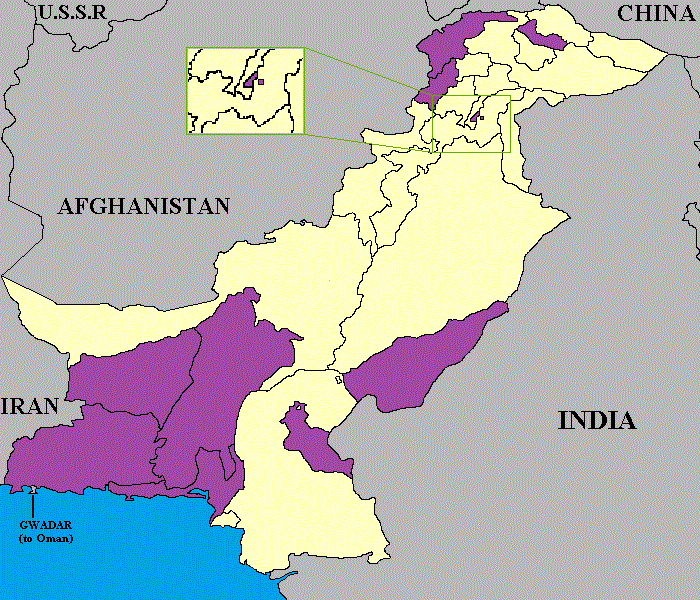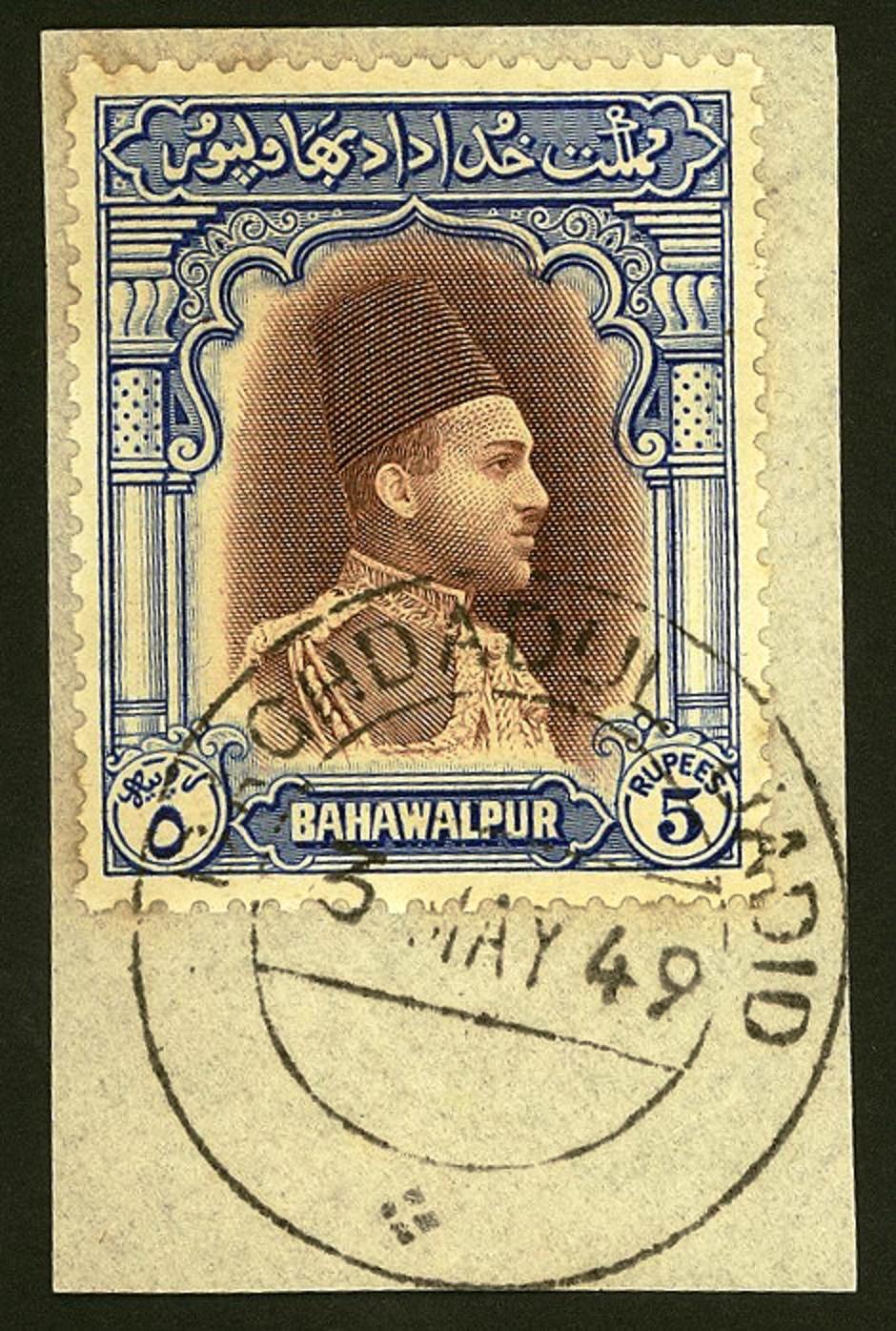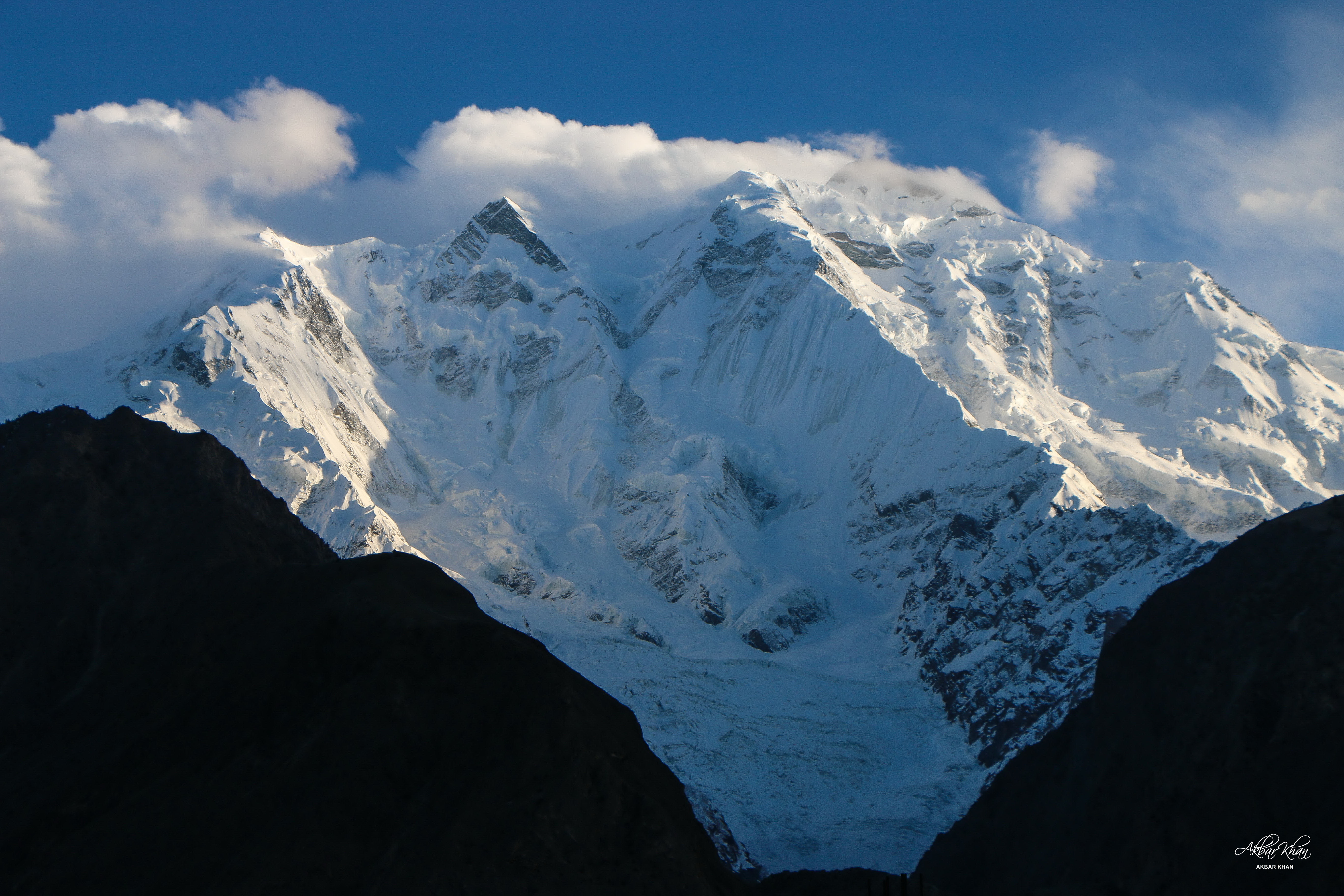|
Nagar (princely State)
Nagar ( ur, , ''Riyasat Nagar'') was a princely salute state in the northern part of Gilgit–Baltistan, Pakistan. Until August 1947, it was in a subsidiary alliance with British India. It bordered the states of the Gilgit Agency to the south and west, and the princely state of District Hunza to the north and east. From November 1947 to 1974 it was a princely state of Pakistan. The state capital was the town of Nagar. The territory previously covered by Nagar forms three tehsils of the Nagar District of Northern Pakistan. History Nagar, founded in the fourteenth century, was an autonomous principality until the British gained control of the state following the Hunza–Nagar Campaign (1889-1893). It was a colonial princely state under the administration of the Gilgit Agency until 1947, but from 1868 it was a vassal of the Maharaja of Jammu and Kashmir, despite never being directly ruled by Kashmir. The rulers of Nagar were considered to be among the most loyal vassals of ... [...More Info...] [...Related Items...] OR: [Wikipedia] [Google] [Baidu] |
Princely States Of Pakistan
The princely states of Pakistan ( ur, ; sd, پاڪستان جون نوابي رياستون) were princely states of the British Indian Empire which acceded to the new Dominion of Pakistan between 1947 and 1948, following the partition of British India and its independence. At the time of the withdrawal of British forces from the subcontinent on 15 August 1947, West Pakistan was less than half of its ultimate size. It took a year of negotiations and accidents to bring the princely states into Pakistan, and a long process of integration followed. Options of the Princes With the withdrawal of the British from the Indian subcontinent, in 1947, the Indian Independence Act provided that the hundreds of princely states which had existed alongside but outside British India were released from all their subsidiary alliances and other treaty obligations to the British, while at the same time the British withdrew from their treaty obligations to defend the states and keep the pea ... [...More Info...] [...Related Items...] OR: [Wikipedia] [Google] [Baidu] |
Durbar (court)
Durbar is a Persian-derived term (from fa, دربار - ''darbār'') meaning the kings’ or rulers’ noble court or a formal meeting where the king held all discussions regarding the state. It was used in India for a ruler's court or feudal levy as the latter came to be ruled and later administered by foreigners. A durbar may be either a feudal state council for administering the affairs of a princely state, or a purely ceremonial gathering, as in the time of the British Empire in India. The most famous Durbars belonged to great Emperors and Kings. In the north of India cities like Baroda, Gwalior, Udaipur, Jaipur, Jodhpur, Jaiselmer, and Agra and the city of Lahore in Pakistan, have palaces and forts that adorn such magnificent halls. The Mughal Emperor Akbar had two halls; one for his ministers and the other for the general public. Usually Durbar halls are lavishly decorated with the best possible materials available at the time. In the south of India, the Mysore Pal ... [...More Info...] [...Related Items...] OR: [Wikipedia] [Google] [Baidu] |
Burushaski
Burushaski (; ) is a language isolate spoken by Burusho people, who reside almost entirely in northern Gilgit-Baltistan, Pakistan, with a few hundred speakers in northern Jammu and Kashmir, India. In Pakistan, Burushaski is spoken by people in Hunza District, Nagar District, northern Gilgit District, the Yasin valley in the Gupis-Yasin District and the Ishkoman valley of the northern Ghizer District. Their native region is located in northern Gilgit–Baltistan and borders with the Pamir corridor to the north. In India, Burushaski is spoken in Botraj Mohalla of the Hari Parbat region in Srinagar. Other names for the language are ''Biltum'', ''Khajuna'', ''Kunjut'', ''Brushaski'', ''Burucaki'', ''Burucaski'', ''Burushaki'', ''Burushki'', ''Brugaski'', ''Brushas'', ''Werchikwar'' and ''Miśa:ski''. Classification Attempts have been made to establish links between Burushaski and several different language families, although none has been accepted by a majority of linguist ... [...More Info...] [...Related Items...] OR: [Wikipedia] [Google] [Baidu] |
Shina Language
Shina ( ) is an Indo-Aryan language spoken by the Shina people. In Pakistan, Shina is the major language in Gilgit-Baltistan spoken by an estimated 1,146,000 people living mainly in Gilgit-Baltistan and Kohistan.{{Cite book , last1=Saxena , first1=Anju , url=https://books.google.com/books?id=g8DAmULPQU0C&dq=shina+gilgit+ladakh&pg=PA137 , title=Lesser-Known Languages of South Asia: Status and Policies, Case Studies and Applications of Information Technology , last2=Borin , first2=Lars , date=2008-08-22 , publisher=Walter de Gruyter , isbn=978-3-11-019778-5 , pages=137 , language=en , quote=Shina is an Indo-Aryan language of the Dardic group, spoken in the Karakorams and the western Himalayas: Gilgit, Hunza, the Astor Valley, the Tangir-Darel valleys, Chilas and Indus Kohistan, as well as in the upper Neelam Valley and Dras. Outliers of Shina are found in Ladakh (Brokskat), Chitral (Palula and Sawi), Swat (Ushojo; Bashir 2003: 878) and Dir (Kalkoti). A small community of Shina s ... [...More Info...] [...Related Items...] OR: [Wikipedia] [Google] [Baidu] |
Burushaski Language
Burushaski (; ) is a language isolate spoken by Burusho people, who reside almost entirely in northern Gilgit-Baltistan, Pakistan, with a few hundred speakers in northern Jammu and Kashmir, India. In Pakistan, Burushaski is spoken by people in Hunza District, Nagar District, northern Gilgit District, the Yasin valley in the Gupis-Yasin District and the Ishkoman valley of the northern Ghizer District. Their native region is located in northern Gilgit–Baltistan and borders with the Pamir corridor to the north. In India, Burushaski is spoken in Botraj Mohalla of the Hari Parbat region in Srinagar. Other names for the language are ''Biltum'', ''Khajuna'', ''Kunjut'', ''Brushaski'', ''Burucaki'', ''Burucaski'', ''Burushaki'', ''Burushki'', ''Brugaski'', ''Brushas'', ''Werchikwar'' and ''Miśa:ski''. Classification Attempts have been made to establish links between Burushaski and several different language families, although none has been accepted by a majority of linguists. Foll ... [...More Info...] [...Related Items...] OR: [Wikipedia] [Google] [Baidu] |
Aga Khan Rural Support Programme
The Aga Khan Rural Support Programme (AKRSP) is a private, non profit organization, established by the Aga Khan Foundation in 1982 to help improve the quality of life of the villagers of Gilgit-Baltistan and Chitral. It is a Non Governmental Organization which is part of the Rural Support Programmes Network in Pakistan. Philosophy AKRSP’s development approach gives primacy to the people and their abilities. It is based on the belief that local communities have tremendous potential to plan and manage their own social development, once they are organized and provided access to necessary skills and capital. The organisations proclivity for a participatory approach found much support in Shoaib Sultan, the founding General Manager of AKRSP. Achievements AKRSP’s past efforts have led to many notable achievements in social and economic domains. Key achievements include manifold increase in incomes, construction/rehabilitation of more than 4000 small infrastructure projects (br ... [...More Info...] [...Related Items...] OR: [Wikipedia] [Google] [Baidu] |
Princely States Of Pakistan
The princely states of Pakistan ( ur, ; sd, پاڪستان جون نوابي رياستون) were princely states of the British Indian Empire which acceded to the new Dominion of Pakistan between 1947 and 1948, following the partition of British India and its independence. At the time of the withdrawal of British forces from the subcontinent on 15 August 1947, West Pakistan was less than half of its ultimate size. It took a year of negotiations and accidents to bring the princely states into Pakistan, and a long process of integration followed. Options of the Princes With the withdrawal of the British from the Indian subcontinent, in 1947, the Indian Independence Act provided that the hundreds of princely states which had existed alongside but outside British India were released from all their subsidiary alliances and other treaty obligations to the British, while at the same time the British withdrew from their treaty obligations to defend the states and keep the pea ... [...More Info...] [...Related Items...] OR: [Wikipedia] [Google] [Baidu] |
Mir (title)
Mir ( fa, ) (which is derived from the Arabic title ''Emir'' 'general, prince') is a rare ruler's title in princely states and an aristocratic title generally used to refer to a person who is a descendant of a commander in medieval Muslim tradition. It was adopted in many languages under Islamic influence, such as Mir is a Balochi word and all the rest of the tribes copy this word and Sardar also came from the Balochs, later it became popular in Pakistan. According to the book '' Persian Inscriptions on Indian Monuments'', ''Mir'' is most probably an Arabized form of ''Pir''. ''Pir'' in Old Persian means "the old", "the wise man", "the chief" and "the great leader." Pir is a religious cleric's or leader's title for Alevi, Yezidism and Yarsanism faith meaning old and wise spiritual leader. ''Amir'', meaning "lord" or "commander-in-chief", is derived from the Arabic root a-m-r, "command". Title Ruling Princes In Muslim princely states of British India, few rulers were form ... [...More Info...] [...Related Items...] OR: [Wikipedia] [Google] [Baidu] |
Rakaposhi 3
Rakaposhi ( ur, ) is a mountain in the Karakoram mountain range of the Gilgit-Baltistan territory of Pakistan. Geography Rakaposhi is a mountain in the Karakoram mountain range in the Gilgit-Baltistan territory of Pakistan, about north of the city of Gilgit. It is ranked 27th-highest in the world. Rakaposhi rises over the Bagrot, Nagar, and Danyor Rakaposhi is the only mountain in the world with more than 5,000 meters height between base camp and the summit; by contrast all of the other tallest mountains in the world have less than 5,000 meters from base camp to top. The first successful recorded ascent by non-natives was in 1958 by Mike Banks and Tom Patey, members of a British expedition, via the Southwest Spur/Ridge route. Park Rakaposhi is also known as Dumani ("Mother of Mist" or "Mother of Clouds"). The people of Nagar and Bagrot Valley have dedicated the Rakaposhi range mountain area as a community park. The Minister for Northern ... [...More Info...] [...Related Items...] OR: [Wikipedia] [Google] [Baidu] |
Hunza Valley
The Hunza Valley ( bsk, , Wakhi: '; ur, ) is a mountainous valley in the northern part of the Gilgit-Baltistan region of Pakistan, formed by the Hunza River, bordering Ishkoman to the northwest, Shigar to the southeast, Afghanistan's Wakhan Corridor to the north, and the Xinjiang region of China to the northeast. Geography The Hunza Valley is a mountainous valley in the northern part of the Gilgit-Baltistan region of Pakistan, formed by the Hunza River, bordering Ishkoman to the northwest, Shigar to the southeast, Afghanistan's Wakhan Corridor to the north and the Xinjiang region of China to the northeast. The Hunza Valley floor is at an elevation of 2,438 meters (7,999 feet). Geographically, the Hunza Valley consists of three regions: Upper Hunza ( Gojal), Central Hunza, and Lower Hunza ( Shinaki). History Buddhism, and to a lesser extent, Bön, were the main religions in the area. The region has several surviving Buddhist archaeological sites, such as the Sac ... [...More Info...] [...Related Items...] OR: [Wikipedia] [Google] [Baidu] |
Zulfiqar Ali Bhutto
Zulfikar (or Zulfiqar) Ali Bhutto ( ur, , sd, ذوالفقار علي ڀٽو; 5 January 1928 – 4 April 1979), also known as Quaid-e-Awam ("the People's Leader"), was a Pakistani barrister, politician and Politician, statesman who served as the fourth President of Pakistan, President from 1971 to 1973, and later as the ninth Prime Minister of Pakistan from 1973 to 1977. Bhutto is an icon of leadership for his efforts to preserve and lead the Pakistanis, nation after the Bangladesh Liberation War. His government drafted the Constitution of Pakistan in 1973, which is the current constitution of the country. He was the founder of the Pakistan People's Party (PPP) and served as its chairman until his execution. Bhutto's execution in 1979, till this day is widely recognised as a judicial murder ordered by then dictator General Zia-ul-Haq. His daughter, Benazir Bhutto later led the Pakistan Peoples Party, PPP and became the 11th and 13th Prime Minister of Pakistan; his grandson, Bi ... [...More Info...] [...Related Items...] OR: [Wikipedia] [Google] [Baidu] |
Syed Yahya Shah
Syed Yahya Shah سيد يحي (also called Aga Yahya) was a Pakistani politician and scholar from Gilgit-Baltistan. Early life Shah was born in Minapin, Nagar District of Gilgit-Baltistan Pakistan. He acquired his early education in Nomal and Gilgit, and attended high school in Astor and Kashmir. He then studied at Edwardes College in Peshawar. On return to Gilgit he taught at High School Gilgit. Syed Yahya Shah passed away on Sunday 11 April 2021 at 3:45 AM DHQ Hospital Gilgit. Political career The people of Nagar elected him to become the first elected Member of Legislative Assembly of Gilgit–Baltistan from Nagar. He actively played a role in making Hunza–Nagar a District in Gilgit–Baltistan. Charity work In addition to his political career, Syed Yahya worked as pioneer nature conservation activist in Gilgit–Baltistan. He was the first person to introduce Trophy Hunting Programme(THP) in Bar Valley in Nagar, which was supported by IUCN, WWF and Government of Paki ... [...More Info...] [...Related Items...] OR: [Wikipedia] [Google] [Baidu] |








